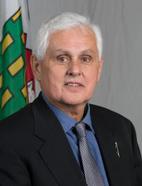Thank you, Mr. Speaker. Today, I would like to pay tribute to Mrs. Rita Rowe, a long-term resident of Hay River, who was surrounded by family and passed away peacefully on February 14th in Hay River. Rita was born on June 22, 1935, on a small farm in Lonesome Pine, Alberta, to Mary and Arthur Lockhart. She was the youngest daughter with 14 siblings. When Rita was just 12 years old, her mother passed away, resulting in Rita going to live with her sister in Edmonton.
At the young age of 16, Rita went looking for work, which found her on a plane heading to Yellowknife. Her adventure was just beginning. Her first job was working as a waitress at the Busy Bee Cafe, where she became lifetime friends with Patricia Rowe. Christmas arrived in Yellowknife, and Rita had no plans. Patricia suggested Rita spend Christmas at the Rowe house. This is where Rita met Bill, her husband-to-be, and the rest is the journey of their life.
Rita and Bill were married on January 20, 1953, in Peace River; however, they lived in Berwyn, Alberta. While living in Berwyn, Bill and Rita travelled back and forth to Saskatchewan to work in the oil field. Soon after, they came North where they ran a garage and restaurant in Enterprise until it was destroyed by fire. It was then Rita and Bill decided to move to Hay River, where Bill had BJ Motors and Rita worked at raising her family of six.
In 1963, Rita was diagnosed with TB and, along with two of her children, had to go to a hospital in Edmonton for treatment. It was a very hard time for the family, but Rita always had a positive outlook on life. Rita worked tirelessly, volunteering with figure skating, Royal Purple, and hockey groups to ensure that goals were achieved and fun was had by all. Rita enjoyed organizing figure skating auctions to make sure ice time was paid for and that coaches were in place.
In 1976, Bill and Rita headed South to take over the Rowe family farm. Rita loved the farm and always had time to visit with neighbours, work the garden, and prepare for family visits. She instilled honesty, integrity, and hard work in each of her children. In 2013, Rita and her family proudly celebrated 100 years of homesteading on the farm.
Mrs. Rita Rowe is sadly missed by her family and the residents of Hay River. Thank you, Mr. Speaker.
